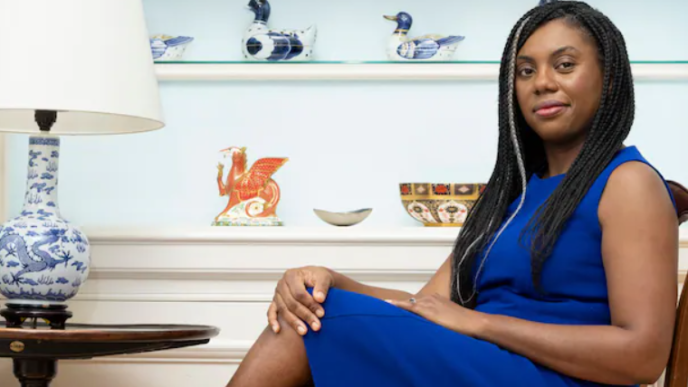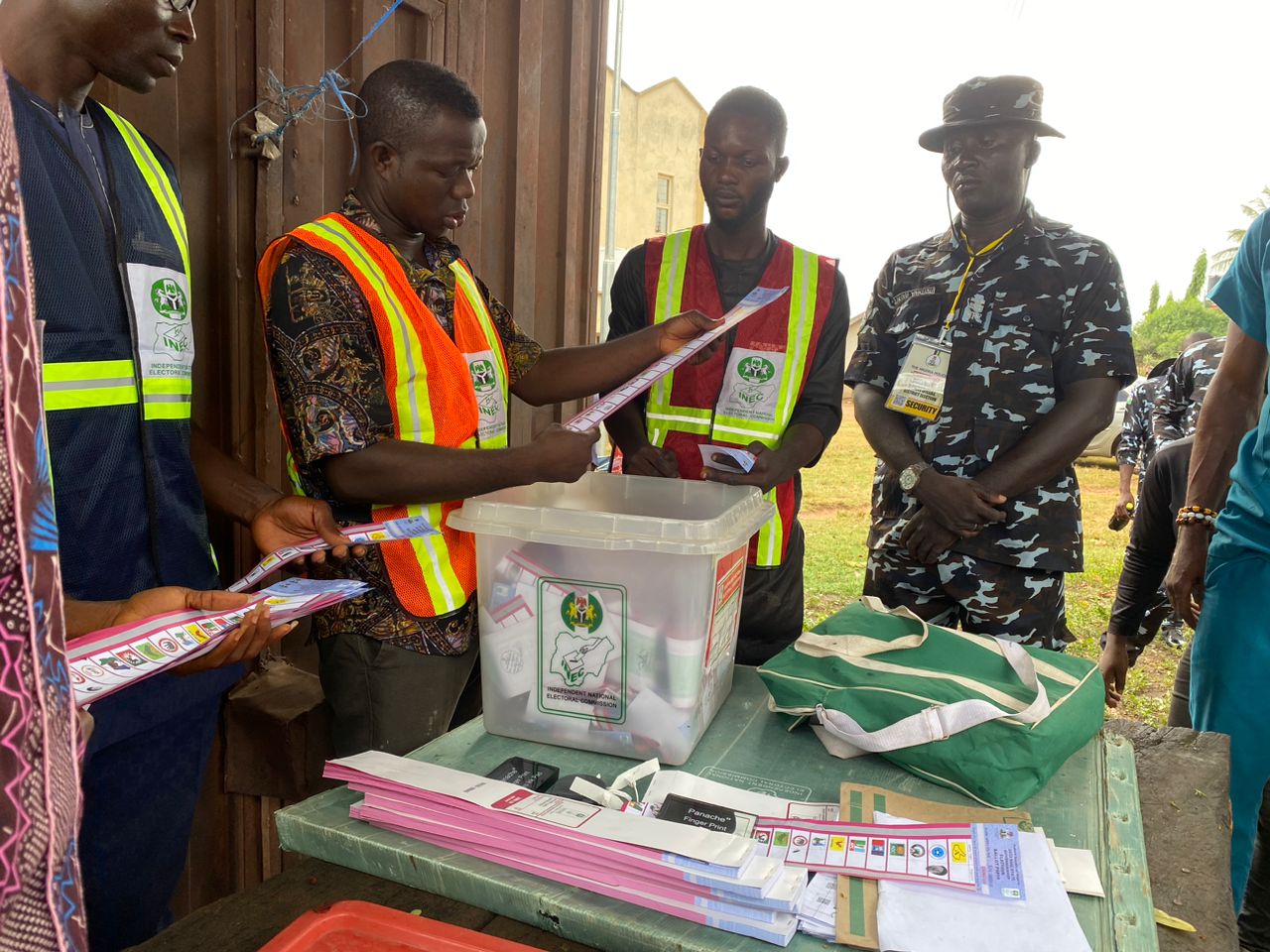Professor Siyan Abdul Ghafar Oyeweso
So soon after being inaugurated by President Bola Ahmed Tinubu, duty beckoned for Professor Siyan Abdul Ghafar Oyeweso at the Obafemi Awolowo University, Ile Ife, Osun state. The horizon blazed forth the shiny future in sync with the global proclamation of gender activists that the future is female. Exemplifying instances played out thus: At the first convocation he presided over as the chair of the university council and pro-chancellor, a female pharmacy graduate, Susan Akinyuwa, emerged as the overall best. She earned 4.97 out of a total 5.0 GP. It’s just the flickers of the future that Professor Siyan Gafar Oyeweso and the rest council members as well as the management and the staff of Obafemi Awolowo University are envisioning.
From the supply side, more like a long-term investment, long forgotten, suddenly sprouting dividends, Nigeria’s First Lady, Oluremi Tinubu, graciously scooped out a whopping N1 billion on OAU for the comprehensive renewal of the landscape of the university that used to be reputable as the most beautiful in Africa. It was her own alma mater too, now endowed with a reliable leadership.
It is a leadership characterised by scholarly distinction and one with a trajectory dating back to years of Lagos’ bond with Nigeria’s first family. Till date, Oyeweso remains the personality historian to be beaten on such Lagos achievers including the legendary businessman and nature conservationist, Chief SL Edu, and of course the author of what has come to be known as New Lagos, Asiwaju Bola Ahmed Tinubu.
Believing so much in Tinubu, Oyeweso’s two distinct analytical volumes of landmark speeches of former Governor Tinubu remain the inimitable sources of primary data on the political vision of the president now playing out. Yet, there was no iota of the likelihood of any shot at the presidency then. But the historian in Oyeweso has manifested the kind of precision that can only matched by data scientists often aided by programmed machines.
Advertisement
The new team lead at OAU, Oyeweso, has been so unequivocal, even at the risk of being expressly repetitive, declaring his strong intent to bring back the enviable glory of the world-class institution dating back to those years the university nurtured him and others to be the best in their respective realms of practice.
A first-class history graduate of the then University of Ife, Oyeweso believes so strongly that OAU, his alma mater, cannot, under whatever consideration, be made to co-habit in the same bracket with low-performing or struggling institutions.
Oyeweso’s speech at the inaugural meeting of the council he is leading is as declaratory as it is retrospective: “We pledge our unflinching commitment to the educational agenda of BAT’s administration. We promise to deliver and we will not fail him… We are here today as co-inheritors of a wonderful heritage that has contributed significantly to our lives and careers. I am happy to be here today as a friend, partner, and son. I was sired, nurtured and bred here. But today, I am here with you to give back to this great university all that we can give to ensure a more enduring and vibrant institution. We shall do this together in peace and harmony by the grace of God Almighty. When I entered this university in 1978, I came in with so much joy in my heart and an unusual glint in my eyes, for being counted worthy to come and study in Africa’s most beautiful university campus. But that was not the only reason. By then, Ife products had become famous and vibrant. They showed great elan in whatever they were doing. We wanted to be counted amongst the lot.”
The lull suffered by the entire education sector in Nigeria over time notwithstanding, OAU, according to Oyeweso, has remained a most outstanding training hub for ICT in Nigeria even as he acknowledges the innovative drive of the faculty of social science.
Advertisement
In a most convincing demonstration of his familiarity with the situation on the campus of OAU, Oyeweso notes the degeneracy of hygiene and sanitation in particular. According to him, unlike the good old days characterised by ample water production and supplies all around the campus from a major source, boreholes are now sunk arbitrarily everywhere rendering the campus to possibility of tremor and allied disasters that may derive from such reckless abuse of nature. Many of the roads too are pothole-ridden and fall easily to torrents of rainfall making them impassable.
For him, universities like OAU, have daunting problems not only because owner governments fail in their duties but because policy implementors too engage either inadequately or wrongly with issues. Obviously guided by his robust experiential assets as a scholar of distinction and administrator with varied exposure, he undertakes a thorough and didactic analysis of the university with a sense of great deftness and concludes with relevant solutionist suggestions.
Understandably anchored on his background as a historian, Oyeweso alerts the council to the existential need for proper grounding of the citadel of knowledge on truthful and well-researched knowledge of its establishment and operations till date: “The university needs an official history of its existence and achievements from inception to date. We must build on the existing publications of Great Ife at 25 (1987) and Great Ife at 60 (2021). We need to agree on the date to adopt for our university between the date of legal establishment (June 1961) and date of formal opening (October 1962). Celebrating Great Ife @ 10 in 1972, Great Ife @ 25 in 1987, Great Ife @ 50 in 2012 and Great Ife @ 60 in 2021 are not only bemusing but also confusing and misleading to say the least. The Department of History of the University must be mainstreamed in any future history book project for the University just as the Department of Dramatic Arts takes the central stage in Convocation Plays and the Department of Music is charged with musical interludes at official university programmes.”
Giving life to his formulations, the Oyeweso council has since constituted a 19-member high-powered strategic planning committee for 2025-2050 development plan. Chaired by council member Barrister Joseph Abaagu, it has as members Deputy Vice-Chancellor Mujidat Babalola as well as two former vice-chancellors, Prof Olufemi Mimiko and Sola Akinrinade. The committee has been mandated to envision the future of the university by reckoning properly with the:
Advertisement
- Will and strong determination to get things done
- Willingness and readiness to access all available government resources like TETFund and Special Grants. This also requires proper utilisation of released funds and prompt retirement
- Inviting well-meaning Nigerians starting with the Alumni located in different realms of life to renovate facilities as some old students have been doing, donate money, equipment and facilities, endow chairs and prizes and generally give towards programmes and events in the university
- Inviting Businessmen to invest in laudable and lucrative with the assurance of safety of their investment as well as profitability
- Properly securing the university estate against encroachment and proper utilisation of the landmass for profitable ventures. Highly commendable in this regard is the ongoing project of fencing the university estate. It should be sustained and seen to a logical conclusion.
Already, this council is acting talk and do as Prof Oyeweso noted at the 48th convocation ceremony held in December 2024, thus: “the council and management have ensured that staff are being promoted as at when due. We do not have backlog of promotion cases. In the same vein, the council has also prioritised student welfare. A number of student hostels have been refurbished while others are under renovation. The management has also ensured steady power supply to all halls of residence, the Hezekiah Oluwasanmi Library and other faculty libraries.
“The council has also put in place the necessary machinery for the rejuvenation of OAU Investment Company, OAU Guest Houses and OAU Commercial Farm. Our goal is to ensure that the University, in partnership with credible organizations embark on mechanized farming.”
For OAU therefore, the shape of the future is almost obvious as the morning sets the tone of the day.
Akanni is an associate professor of journalism at the Lagos State University. Follow him on X @AkintundeAkanni.
Advertisement
Views expressed by contributors are strictly personal and not of TheCable.
Add a comment











